Taiwan's Furniture Parts Makers Forge Ahead in a Challenging Industry
Local producers keep rivals at bay through R&D, automation, and diversification
2013/03/01 | By Steve ChuangTaiwan's furniture industry may be shrinking in terms of production and number of companies, but local parts suppliers are honing their advantages to stay competitive in the increasingly challenging global market today.
Chieh Ling
One such company is Chieh Ling Screws Enterprise Co., Ltd., a veteran maker of fasteners and hardware accessories with more than 30 years of experience in the original equipment manufacturing (OEM) business. The company's screws and related assemblies are mostly used in higher-end furniture and leading bicycle brands, such as Giant and Merida.
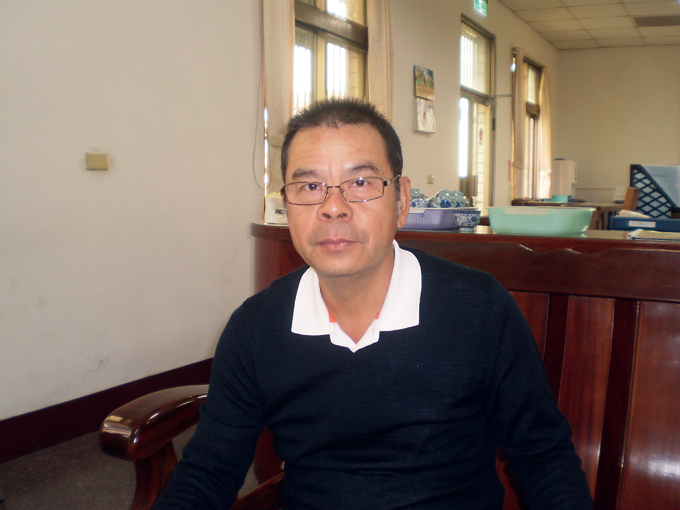
Founded in 1989 in Taiwan's central county of Changhua, Chieh Ling is one of only a few Taiwanese companies in the region making specialty furniture screw and washer assemblies, claims company president J.C. Lin. Lin also notes that Chieh Ling can produce 400 to 500 metric tons of such parts for furniture and bicycles each month. It also enjoys a strong reputation among downstream customers thanks to its dedication to continuous improvement of manufacturing capabilities through R&D.
R&D is the Key to Quality
Lin firmly believes that sound manufacturing capability and good quality, achieved through R&D, go hand-in-hand. "Whenever Chieh Ling develops specialty parts, we assign all of our experienced managers and directors to R&D work, so as to optimize manufacturing processes, keep quality consistent and reliable, and ensure punctual delivery."
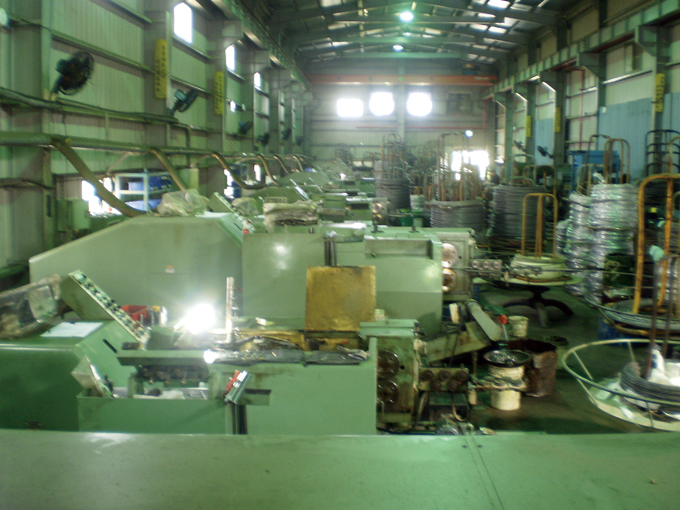
This strategy has helped Chieh Ling to boost manufacturing capability and was a key to the company's efforts to weather the global financial crisis in 2008 and 2009. Lin says that the participation of experienced directors in R&D has enabled his company to efficiently produce a variety of screw and washer assemblies and other special parts using efficient one-step and extrusion forming processes. The company also has nearly fully automated its production.
"We take pride in our production capability,” Lin says. "It has helped us to minimize manpower input, which is a key to sustainable development of smaller-sized manufacturers in Taiwan, especially at a time when the industry is struggling with labor shortages and high wages." Advanced production capabilities also have enabled the company to help customers to develop new products with higher added value at lower cost and less time.
Compared to most of its peers who have suffered from business downturns mainly due to a shrinking furniture industry in Taiwan, Chieh Ling grew its business by 10% in 2012, Lin says. Lin says his company will add two automatic cold-forging machines at its ISO 9001 certified factory to ramp up output by about 10% in 2013. So far, the company has about 10 such machines, which can churn out 300 units of screws and other parts a minute.
"We are confident that our business will keep growing in 2013, helped by the brighter global economic outlook and stabilizing global prices of steel," Lin says.
Wei Kuen
Wei Kuen Co., Ltd. is another furniture parts supplier who is using automated facilities to hone manufacturing processes and increase its competitive advantage. The Changhua-based company is a specialized producer of nail glides with a history of more than three decades.
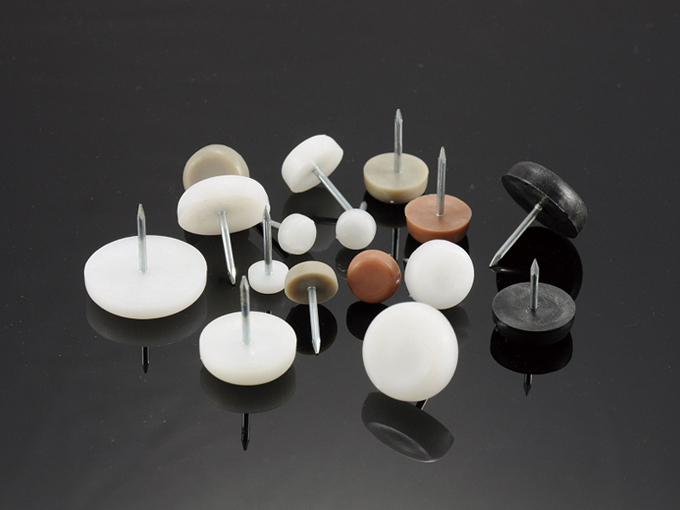
Wei Kuen expanded into the furniture parts sector when emerging rivals threatened its original stationery business. The company was one of the first to automate production over 20 years ago. The move has put it in a strong competitive position, so strong in fact that it has been indirectly involved in IKEA's nail glide supply chain in Asia for years.
Company manager Chilles Lin says that his company's competency is insert molding. "This traditionally requires more labor input than ordinary plastic injection molding. Before automating our production line, four workers operated a single plastic injection machine. Today, one worker can operate three to four machines, significantly improving our operating efficiency and quality consistency."
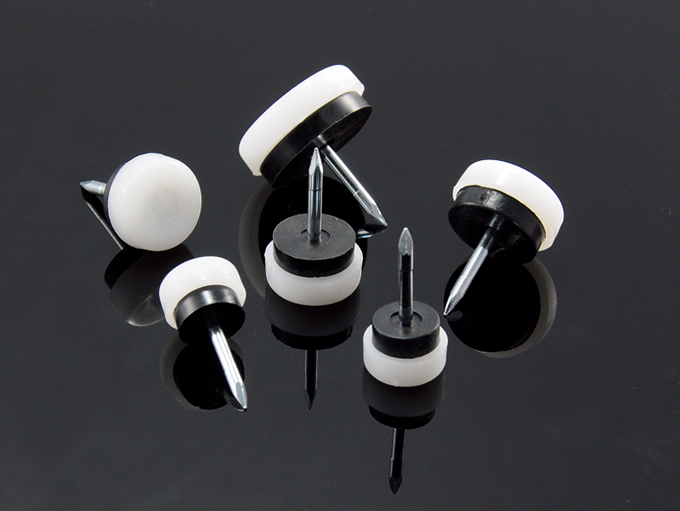
The research behind the automation drive has also netted Wei Kuen a treasury of know-how that enables it to quickly fine-tune and adjust lines to produce nail glides with varying specifications. This advantage, Lin says, has helped the company stay well ahead of its rivals.
Sharpening an Edge
Despite its production efficiency, Wei Kuen has not been immune to the increasingly competitive market, which has put headwinds on growth. Lin says his company therefore continues to use its automation know-how to further hone production capabilities and better complete globally.
One such initiative launched in 2013 is to develop molds and dies independently. The company's R&D lab is reverse engineering turnbuckles and specialty furniture parts to broaden its product lineup. "We are modularizing our molds and dies for automatic plastic injection machines. This will help us to accelerate development of new products, cut processing costs and shorten delivery," says Lin. "Initial results of this plan have been good so far."
The technology-driven manufacturer is also heightening attention to exploring markets, including through the establishment of office in Czech to improve links with customers. "To develop sustainably, we need to go global and link with customers worldwide," Lin says. "So, we will be more focused on this issue in the years to come."
Lin's optimism about his company's future is due partly to the stable local supply of high-quality plastic materials compared to emerging rivals, and partly to the company's automation technology. "Global market demand is almost immune to seasonal factors and comparatively stable," Lin says. He is confident that between automation and raw material advantages, Wei Kuen is well positioned to increase sales in the near future.
Lin also anticipates an easing of pressure from Chinese rivals as wages in the country rise. "It is safe to say that players without automated production will be marginalized in the competition," he says. He also has seen some contract orders taken by Chinese makers return to his company over the past few years. "So we have a good reason to believe that Wei Kuen still has a bright future."
OHLA
OHLA Plastic Co., Ltd., one of the top three plastic furniture parts and accessories makers by output in the region, is building on strengths through a strategy focused on diversifying production in the coming years.
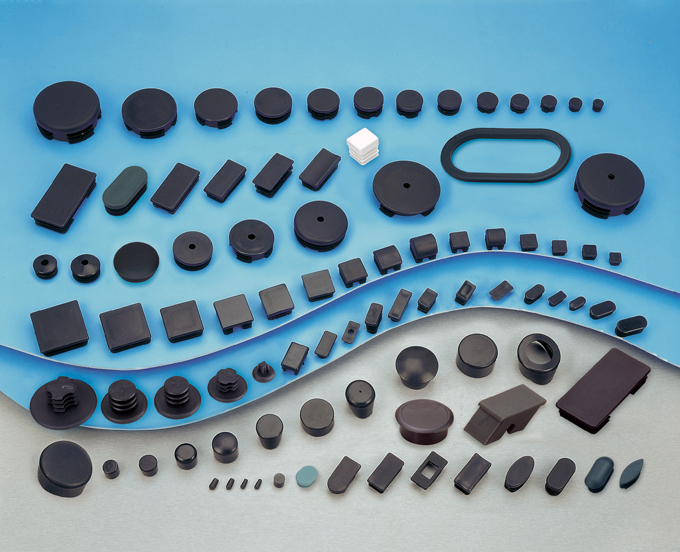
"In the past, plastic parts for furniture contributed 90% to our overall revenue," says company president Q.S. Jiang. "But, we will make some changes to the business by venturing into the medical instrument, fitness and sport instrument, machinery, hand tool and agricultural machine sectors." The move is OHLA's answer to the changing industrial landscape in Taiwan and the falling prices of plastic furniture parts. "A few contract orders have actually returned over the past two years, but low prices are hurting profits."
Jiang emphasized that his company has stepped up R&D on specialty plastic parts for the abovementioned applications and has been making such products in cooperation with customers on a JDM (joint design manufacturing) basis. "Customers trust our cutting-edge know-how in plastic materials and services," says Jiang. "These competitive advantages will facilitate our entry into new segments."
A Service-driven Maker
Founded in 1993 in Taichung City, central Taiwan, OHLA is well known as a company that can provide clients with problem-solving solutions during the product development stage. Jiang claimed that his company participates in customer R&D projects, playing an advisory role to help them minimize product development and marketability risks. For example, the company often encourages customers to use cold-resistant plastic for furniture parts that will be used in cold regions.
OHLA is also well versed in optimizing manufacturing methodologies for plastic parts with new specifications and designs: a skill that has further made the company a trusted name among professional buyers worldwide. "Our company's extensive know-how separates us from our rivals."
Jiang is the first to admit that diversifying into new markets is a hard road that will take considerable efforts, especially with competitors on the rise. Still, he is determined to follow this strategy to drive growth at his company. "While maintaining business with our current customers in the plastic furniture parts segment, our company will work hard to build partnerships in new markets rooted in our R&D strengths."




